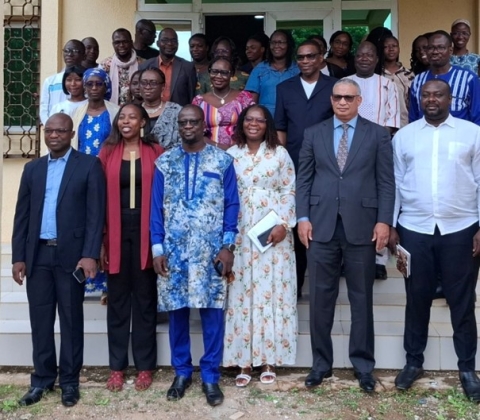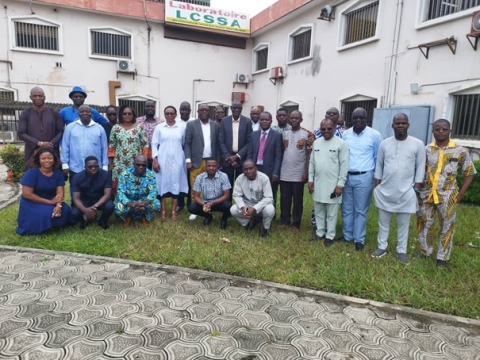
ECOWAS's agricultural policy (ECOWAP) is implemented around five key themes, including the strengthening of food and nutritional resilience, security and sovereignty. Through this theme, ECOWAS aims to ensure sustainable and competitive agriculture to guarantee food sovereignty in West Africa.
To achieve this objective, several initiatives are being implemented for the benefit of the populations of the Sahel and West Africa, including the West Africa Food System Resilience Programme (FSRP/PRSA).
Supported by the World Bank and officially launched in June 2022, FSRP implements activities relating to digital advisory services for the prevention of food crises, the sustainability and adaptation of the productive base and the facilitation of intra-regional trade in West Africa. These activities are coordinated respectively by CILSS, the West and Central African Council for Agricultural Research and Development (CORAF) and ECOWAS, which is responsible for the overall coordination of the programme with eight beneficiary countries: Burkina Faso, Chad, Ghana, Mali, Niger, Senegal, Sierra Leone and Togo.
For all these countries, the region is aiming for a 25% reduction in the number of food-insecure people in the areas targeted by the PRSF, with a total of more than 5.5 million beneficiaries, 40% of whom are women.
Despite a difficult context for implementing activities in the field as a result of socio-political and security challenges, significant achievements have been noted. In 2024, a total of 2,344,411 direct beneficiaries, 35% of whom were women, were reached by PRSF activities implemented in 7 countries: Burkina Faso, Ghana, Mali, Niger, Sierra Leone, Chad and Togo. A reduction in the number of people living with food insecurity of almost 22.2% compared to the base year of 2022 has also been observed in the intervention zones of Burkina Faso, Mali, Niger and Togo.
With regard to access to agrometeorological services, all countries in the Sahelian and Sudano-Sahelian zones have had access to CILSS information on seasonal agricultural forecasts and risk management.
With 221 technologies and innovations disseminated, the actions coordinated by CORAF will enable countries to set up sustainable production and productivity systems to increase producers' incomes.
Under the coordination of ECOWAS, an agricultural trade and markets scorecard (EATM-Scorecard) has been developed and put into operation in five countries (Ghana, Niger, Sierra Leone, Chad and Togo), with the aim of extending it to all countries by 2025.
The various evaluations, both in individual countries and at regional level, have helped to capitalise on good practice and encourage better integration of innovative approaches aimed at improving food security, the resilience of agricultural systems and access to markets.
These developments show that FSRP making progress towards its objectives and making a lasting contribution to food resilience in West Africa and the Sahel.







